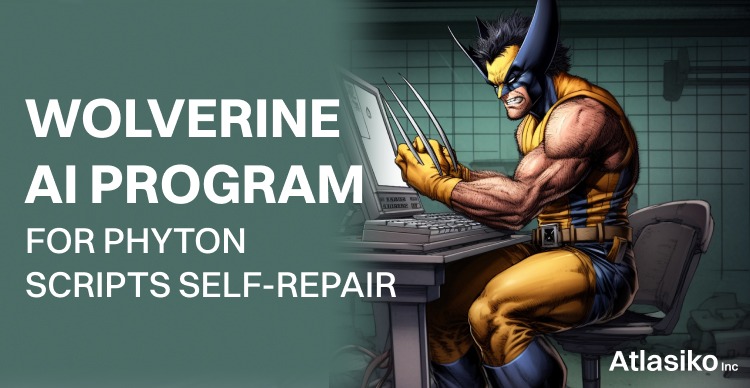A developer called "BioBootloader" has created a program called Wolverine that uses artificial intelligence (AI) to debug faulty Python code. According to Hackaday, Wolverine operates like the Marvel superhero by providing "regenerative healing abilities" to Python programs. By running scripts with Wolverine, GPT-4 edits the code and explains what went wrong when it crashes, fixing it repeatedly until all the bugs are ironed out.
GPT-4 is a multimodal AI language model released in March by OpenAI, and it is accessible to ChatGPT Plus subscribers. As well as it available to beta testers in API form. It utilizes its vast knowledge of billions of documents, books, and websites scraped from the web to carry out various text-processing tasks, including programming.
In a demonstration video, BioBootloader shows a step-by-step window display, with Python code (left) and Wolverine results (right) presented in a terminal. The developer loads a custom calculator script with deliberately added bugs, executes it, and lets Wolverine work its magic. GPT-4 provides a description of the program's mistakes, demonstrates the improvements it attempts to make, and runs the program again. If new errors appear, GPT-4 fixes the code again until it runs appropriately, as a result, the original Python file contains the changes added by GPT-4.
Today I used GPT-4 to make "Wolverine" - it gives your python scripts regenerative healing abilities!
— BioBootloader (@bio_bootloader) March 18, 2023
Run your scripts with it and when they crash, GPT-4 edits them and explains what went wrong. Even if you have many bugs it'll repeatedly rerun until everything is fixed pic.twitter.com/gN0X7pA2M2
The code for Wolverine is accessible on GitHub, and the developer suggests that the technique might be applied to more programming languages. To use Wolverine, an OpenAI API key for GPT-3.5 or GPT-4 is required. Although the GPT 3.5 API is available for everybody with an OpenAI account, GPT-4 access (even now) is limited by a shortlist.
Other experiments including GPT-4 in recursive loops, such as Auto-GPT and BabyAGI, have tried to empower GPT-4 with more "agentic" potentialities. This would allow it to launch more GPT-4 instances (agents) to perform various tasks concurrently or act autonomously.
To sum up, the technique demonstrates the possible future where apps can repair their own errors, even unforeseen ones that may happen after launching. However, the consequences, safety, and the program's ability to fix all bugs personally have not been surveyed fully.
Our team suggests you overview the news about Nvidia’s AI supercomputer that will provide a new level for company profit.
Also, you can read our report about the Discord platform that presents an AI solution for its chat platform.
You can be more interested in IT by reading all recent news, for instance, Google’s optical interconnect implementation.







